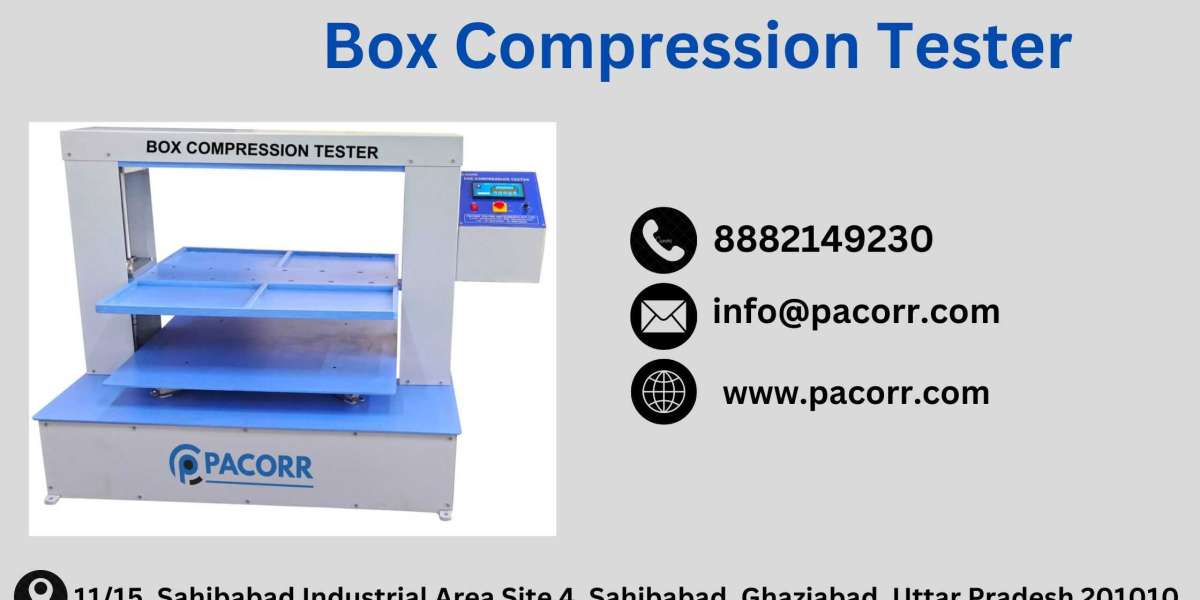Introduction
In today's fast-paced industrial world, the packaging industry plays a crucial role in ensuring the safe transportation and storage of products. One of the most vital aspects of packaging is its ability to withstand various stresses during handling and transit. This is where the Box Compression Tester (BCT) becomes indispensable. This article delves into the importance, functionality, and benefits of the Box Compression Tester, highlighting why it is a must-have for any packaging quality assurance process.
What is a Box Compression Tester?
A Box Compression Tester is a sophisticated piece of equipment designed to measure the compressive strength of packaging materials, particularly corrugated boxes. By applying a controlled force until the box deforms or collapses, the tester provides valuable data on the box's ability to resist compression under load. This information is crucial for manufacturers to ensure their packaging meets the required standards for durability and safety.
Key Features of a Box Compression Tester
- High Precision Load Cell: Ensures accurate measurement of compression force.
- Digital Display: Provides real-time data and easy-to-read results.
- Adjustable Platen Speed: Allows customization of test parameters to meet specific requirements.
- Automatic Data Logging: Facilitates easy recording and analysis of test results.
- Robust Construction: Ensures long-term durability and consistent performance.
Importance of Box Compression Testing
- Ensuring Product Safety: Proper packaging prevents damage during shipping and handling. Box compression testing ensures that boxes can withstand stacking and pressure without collapsing, protecting the products inside.
- Compliance with Standards: Many industries require packaging to meet specific standards (e.g., ISO, ASTM). A Box Compression Tester helps manufacturers comply with these standards, ensuring their products can be shipped safely and efficiently.
- Cost Efficiency: By testing the strength of packaging, companies can avoid over-engineering, reducing material costs while maintaining product safety. This balance between durability and cost-effectiveness is critical for competitive advantage.
- Brand Reputation: Packaging failure can lead to damaged goods, returns, and dissatisfied customers. Ensuring robust packaging through compression testing helps maintain brand reputation by delivering products in perfect condition.
Applications of Box Compression Testing
- Corrugated Boxes: Widely used in shipping and storage, these boxes require rigorous testing to ensure they can handle stacking and pressure during transit.
- Cartons and Containers: Used for a variety of products, from electronics to food items, ensuring their structural integrity is paramount.
- Packaging Design and Development: Helps in the research and development of new packaging materials and designs, ensuring they meet the required strength criteria.
How to Perform a Box Compression Test
- Preparation: Place the box or container on the test platform, ensuring it is correctly aligned.
- Setting Parameters: Adjust the platen speed, load limits, and other parameters according to the test requirements.
- Initiating the Test: Start the test, and the machine will apply a compressive force until the box deforms or collapses.
- Data Collection: The digital display will show real-time data, and the machine will automatically log the test results.
- Analysis: Review the results to determine the compressive strength of the box and make necessary adjustments to the packaging design or material if needed.
Benefits of Using a Box Compression Tester
- Accurate and Reliable Results: Provides precise measurements, ensuring the packaging meets industry standards.
- Improved Product Safety: Helps in designing packaging that can withstand real-world handling and shipping conditions.
- Cost Savings: Prevents over-packaging and reduces material costs by optimizing the packaging design.
- Enhanced Brand Image: Ensures products reach customers in perfect condition, maintaining a positive brand reputation.
Conclusion
The Box Compression Testing is a crucial tool for any packaging quality assurance process. By ensuring that packaging materials can withstand the rigors of shipping and handling, manufacturers can protect their products, reduce costs, and maintain customer satisfaction. Investing in a high-quality Box Compression Tester is essential for staying competitive in today's demanding market.
For more information about the Box Compression Tester and other quality testing equipment, visit Pacorr.com. Pacorr Testing Instruments offers a wide range of testing solutions designed to meet the diverse needs of industries worldwide.








